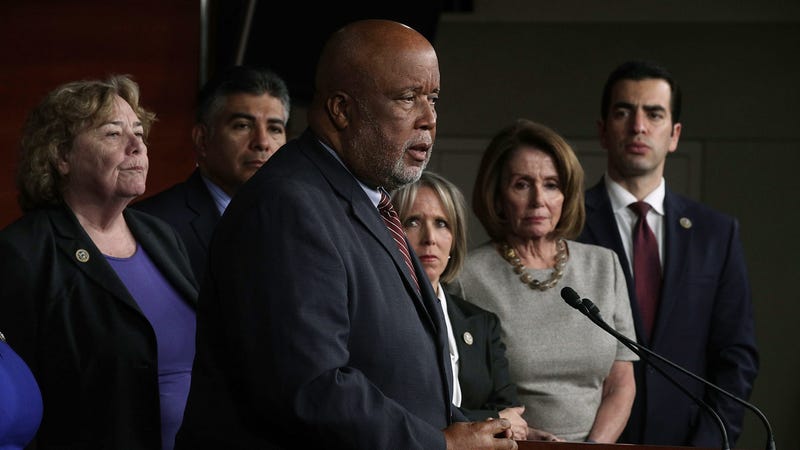 Sen. Bennie Thompson, speaking in this February 2018 photo, introduced on Friday the For The People Act, an effort to shore up election security nationwide.Photo: Getty / Alex Wong
Sen. Bennie Thompson, speaking in this February 2018 photo, introduced on Friday the For The People Act, an effort to shore up election security nationwide.Photo: Getty / Alex Wong
The first bill introduced by House Democrats in the 116th Congress is a whopping 570-page election security package that offers considerable funding for state officials working to safeguard the vote. It would require intelligence community assessments ahead of all federal elections, to be accompanied by formal, public recommendations from multiple agencies, including the Homeland Security Department. But most importantly, the bill requires all states to adopt paper ballots, long considered the only true bulwark against vote tampering and counting error.
The bill, known as H.B. 1 or the “For The People Act,” would fund through grants participant states seeking to replace outdated voting machines and other systems vulnerable to on-site and remote interference; security clearances would be expedited to give state election officials faster access to classified threat intelligence; and would also require the testing of voting machines nine months before ballots are cast.
What’s more, the bill would require the Executive Office to produce a national strategy to protect against “cyber attacks, influence operations, disinformation campaigns, and other activities” that threaten elections. The strategy would be required to consider the effects of cyber- and information warfare tactics targeting voters, as well as weigh the benefits of collaborating more closely with foreign allies in the detection and deterrence of such conflict.
The bill includes a transparency provision that prevents the White House strategy from being kept secret, though it allows for parts to be classified. The president would be required to follow up with an implementation plan within 90 days.
“With a mandate from the American people, the new House Democratic Majority is now finally in a position to pass legislation that will help secure our election infrastructure and help instill confidence in our democratic institutions,” said Rep. Bennie Thompson, the new chair of the Committee on Homeland Security.
The Democrats’ bill is incorporates the Election Security Act, introduced by Thompson last February while concerns on Capitol Hill were high over a potential repeat of the foreign interference described by U.S. intelligence following the 2016 election. The Election Security Act is not to be confused with the Secure Election Act, a like-minded Senate bill that was watered down significantly over the course of the summer. (By August for instance, the Senate bill no longer required the use of meaningful audits, and further allowed election officials to grade their own performance.)
In regard to audits, the 2019 bill is weaker than another proposed by Senate Democrats last year, which made risk-limiting audits compulsory nationwide. The House Democrats’ bill merely limits the use of grant money intended for audits to those of the risk-limiting variety.
Risk-limiting audits are endorsed by the American Statistical Association as the only effective form of auditing to safeguard against election fraud and error. Whereas other audits rely on samples of a fixed percentage, risk-limiting audits consider the overall number of votes and the apparent closeness of results. The audit isn’t done until one side’s victory is a mathematical fact.
The Senate bill to make risk-limiting audits mandatory in every state, known as PAVE or the Protecting American Votes and Elections Act, was introduced by cybersecurity hawk Ron Wyden of Oregon. Around 10 Democrats co-signed the bill, including Senators Bernie Sanders and Kamala Harris.
Read the full copy of the For The People Act here.
Share This Story